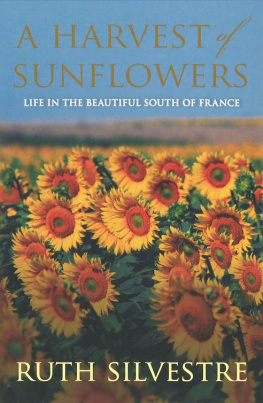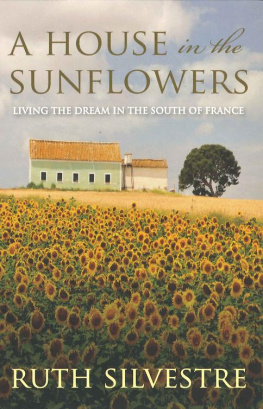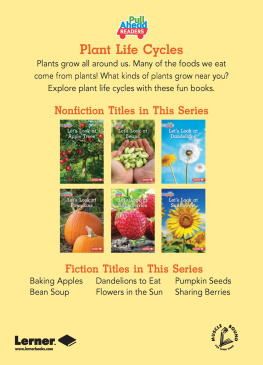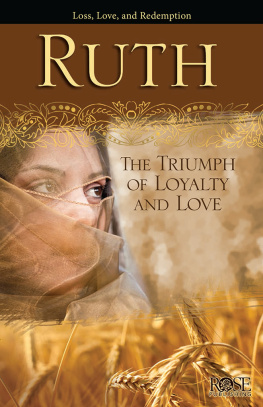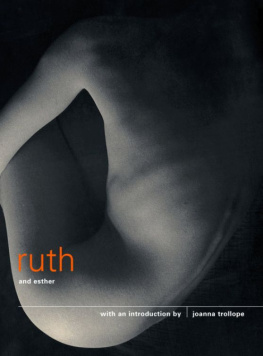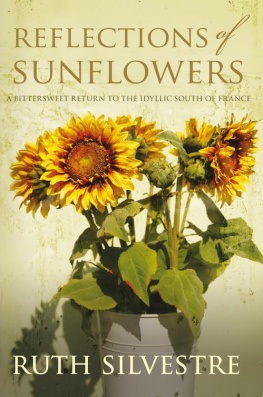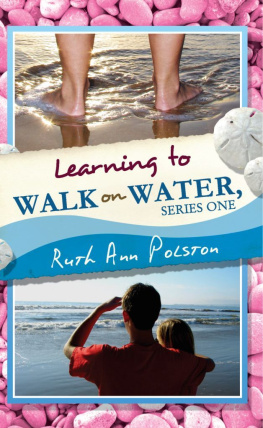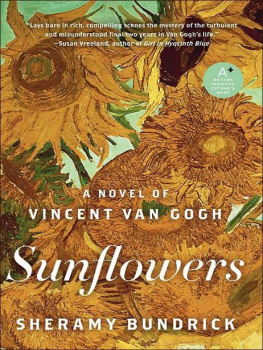Ruth Silvestre - A Harvest of Sunflowers
Here you can read online Ruth Silvestre - A Harvest of Sunflowers full text of the book (entire story) in english for free. Download pdf and epub, get meaning, cover and reviews about this ebook. year: 2013, publisher: Allison & Busby, genre: Non-fiction. Description of the work, (preface) as well as reviews are available. Best literature library LitArk.com created for fans of good reading and offers a wide selection of genres:
Romance novel
Science fiction
Adventure
Detective
Science
History
Home and family
Prose
Art
Politics
Computer
Non-fiction
Religion
Business
Children
Humor
Choose a favorite category and find really read worthwhile books. Enjoy immersion in the world of imagination, feel the emotions of the characters or learn something new for yourself, make an fascinating discovery.
- Book:A Harvest of Sunflowers
- Author:
- Publisher:Allison & Busby
- Genre:
- Year:2013
- Rating:5 / 5
- Favourites:Add to favourites
- Your mark:
- 100
- 1
- 2
- 3
- 4
- 5
A Harvest of Sunflowers: summary, description and annotation
We offer to read an annotation, description, summary or preface (depends on what the author of the book "A Harvest of Sunflowers" wrote himself). If you haven't found the necessary information about the book — write in the comments, we will try to find it.
A Harvest of Sunflowers — read online for free the complete book (whole text) full work
Below is the text of the book, divided by pages. System saving the place of the last page read, allows you to conveniently read the book "A Harvest of Sunflowers" online for free, without having to search again every time where you left off. Put a bookmark, and you can go to the page where you finished reading at any time.
Font size:
Interval:
Bookmark:
For David
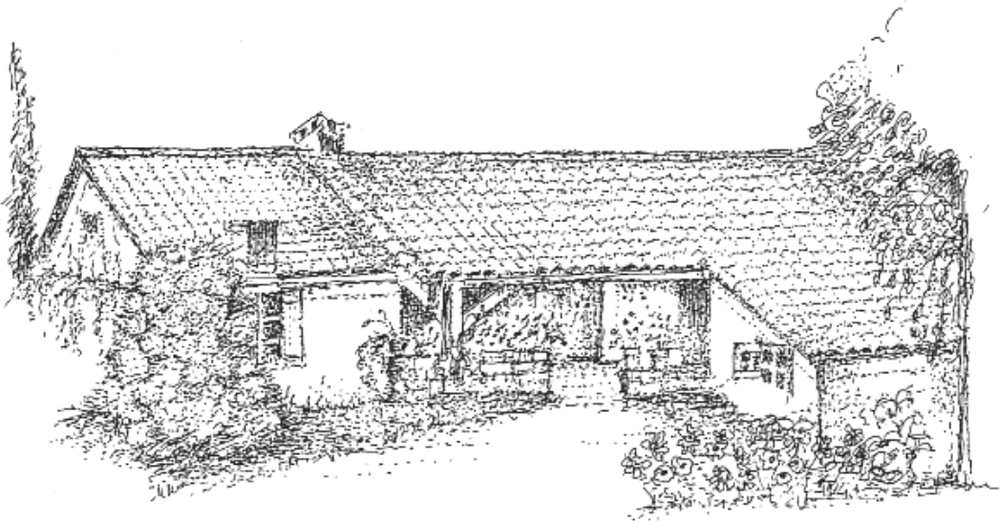
It is hard to believe that this will be our twentieth summer at Bel-Air, our house in the sunflowers. The details of that first glimpse on a hot and hazy day are still vivid. We had been searching intermittently for three years and were leaving for England at the end of the week. As we followed the sun-burned, barelegged farmer on his small motorcycle up through the maize, head high on either side of the bumpy track, we had no idea what we would find. M. Bertrand, his chin still greasy from eating confit de canard, was reluctantly interrupting his midday meal to show us the house he had for sale. Our thirteen-year-old son Matthew leaned out of the camper window as we approached what appeared to be a complete ruin. Turning to look back at us, the farmer shook his head, his mobylette wobbled and we breathed again. We turned right, passing a dried-up pond, a barn wall and turning again, stopped in front of an old stone house with a long sloping roof and a well under the wide porch. The broken shutters were closed. We looked at it in a silence broken only by the sound of crickets. It seemed to be asleep. It was not a ruin but, had it been left empty another twelve years, would have certainly become one. The tiles were haphazard, sliding down the roof. Inside there was a stream of green lichen across the wall of the main room, and all the wooden floors were eaten away. But there was also something else; a spirit of place. This house had once been loved and cared for, and it has been our project, our joy and our delight, ever since that day.
In these twenty years we have come to realise how very fortunate we were to find both this particular house and the friendship of M. and Madame Bertrand, who, very quickly, became Raymond and Claudette. Together we have watched our children grow up. Their son and daughter and our two sons, who are now beginning their own families. We have also looked back and learned a little of the people who lived at Bel-Air before us. Anas Costes came as a young bride in 1889 and lived here until she died in 1961. Her only son Alos was crippled with polio as a boy. He never married. When she died he could not manage without her and died five years later. Her husband Justin, as the eldest of the three brothers born at Bel-Air, inherited the property. Justin died of a heart attack when he was only fifty-two, leaving Anas and her handicapped son to look after everything.
Those who remember her always say, Ah oui,Anaselle tait vaillante. Two photographs of her hang on my wall. One when she was in her twenties with her young son at her side holding a hoop, and another taken much later at a family wedding. She was then sixty-two. Her face is lined but her smile is almost mischievous. She wears a brooch to pin her collar and a plain head band. Her son looks very smart in a stiff collar, his hair neatly arranged. I have faded photographs of her husband and brother-in-law, taken during their periods of compulsory military service when they were young. They are handsome and carefree in their uniforms. Now we are hanging our own dynasty on the opposite side of the wall, photographs of our children and grandchildren, who will be the next guardians of Bel-Air.
This is the short holiday, the flying visit. Not that we fly any more Eurostar has changed all that. After London to Paris, the TGV takes us to Agen pronounced Agenne by the people who live there and if we travel on a Friday, there is a good connection to Monsempron Libos. We are told that it is a station that SNCF would dearly love to close but, so far, petitions to retain its services have succeeded. The station house is painted a deep yellow ochre, its white edging and shuttered upper windows giving it a residential look. Shaded by a Mediterranean cypress, doves sit cooing from the painted corbels. Sometimes we take the night train direct from Paris which arrives here just after six in the morning. If it happens to be a Thursday, the first traders will be unrolling their umbrellas to set up the weekly market, the largest in the region, when the whole town is closed to traffic.
We are in Lot-et-Garonne, six hundred miles south of Calais, and it shows. Most of the people who come in from miles around both to buy and sell are short and dark, with wide faces and ready smiles. The local accent is strong, with rolled rs, and the last syllables pronounced emphatically. If it is summer the stalls will be piled high with melons and nectarines, strawberries and peaches, artichokes, the finest French beans and twenty kinds of olives. There will be the squeal of piglets and the smells of paella cooking in a giant pan, quails roasting on a spit, goat cheese and strings of garlic.
Whatever time we arrive we know our friends will meet us. We hug each other and stand back to look. Perhaps a little thinner or, more likely, fatter; always, alas, a little older.
This time it is Claudette who has come to collect us. We hurry home along the familiar roads.
I see theyve had a new roof at Mathildes old house.
Yes, just before Christmas.
Ah, M. Lombard is still planting sunflowers in his top field then. Good.
Would you like a drink before you go up?
As we climb out of the car, Claudettes elderly parents, Granny and Grandpa, stick in hand, come very slowly across the courtyard from different directions, like two old snails. Grandpa has used a stick for many years but it is the first time for Grandma. Her back is noticeably more crooked but her face is plump and rosy and her smile as sweet as ever.
a va, Mami?
She shrugs. Tout doucementslowly.
Grandpa shakes our hands peering up uncertainly, then suddenly smiles and nods.
Eh! Oh! shouts Claudette across the courtyard. From the nearest orchard, through the gate by the first barn where the chickens scurry out of his way, Raymond comes to greet us. He kisses me warmly and beams.
a va?
Oh, pas trop.
Why? Whats the matter?
Its my shoulder. I cant remember what I was doing. I turned my arm andclac! He stops himself just in time from repeating the movement, so eager is he to explain. Hes had an X-ray but it showed nothing. Its a ligament. Hes had physiotherapy, acupuncture nothing helps.
Rest? I suggest. He laughs.
We troop up into the familiar kitchen. Cats are tipped off chairs and we sit. On the shelf there is a large, gaudy trophy which Raymond displays with pride. Once again they have won the prize at the special soire de dgustations, de convivialit et dhumeur, which is given each autumn by the local Cave Cooprative. It was apparently a great evening. There were two hundred participants Raymond tells us, his eyes shining. Each producteur competes to encourage the greatest sale of wine from the Cave, and Raymonds success is due in no small measure to all our friends and family who put every purchase down on his total. In addition to the cup he is also rewarded with his own weight in wine. We shall not go thirsty this holiday.
A la vtre!
A la tienne tienne!
No problems up at the house?
Raymond shakes his head. And your 2CV is working. I started it this morning.
Claudette drives us up the track, past the farm in which their daughter Vronique now lives with her husband and three-year-old child, and we see Bel-Air for the first time for eight months. There are swathes of wild marguerites interspersed with love-in-a-mist just waiting to bloom. The wisteria is past its best but the boule-de-neige is heavy with round white blossom. The valerian which I planted two years ago, has at last taken off and the mallow bushes are as abundant as heavily pregnant girls. Will they flower before we have to leave?
Font size:
Interval:
Bookmark:
Similar books «A Harvest of Sunflowers»
Look at similar books to A Harvest of Sunflowers. We have selected literature similar in name and meaning in the hope of providing readers with more options to find new, interesting, not yet read works.
Discussion, reviews of the book A Harvest of Sunflowers and just readers' own opinions. Leave your comments, write what you think about the work, its meaning or the main characters. Specify what exactly you liked and what you didn't like, and why you think so.

